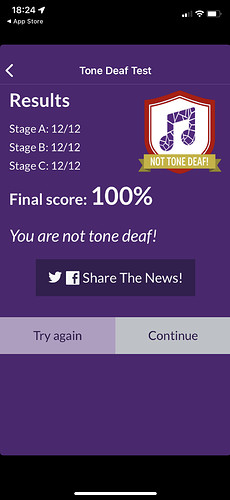Well, I won’t be able to complete the Chord Tones class, due to a message that kept popping up saying “i was already taking this class”
I sent a message about this 2 days ago, along with letting them know of two copy / pasta errors in Walking lines lesson 2-21 and 2-21.
I never heard back, so I started adding everything to my cart to see if I cold get the same message, especially ones I had only partly completed, but no, they would have all worked, other then Chord tones.
CRAZY
But,
I select the sight reading complete pack and added to cart.
I selected the Slap bass complete course to the cart.
They whole pack showed up as one item in the cart, so I put in my discount and said “yes sir, go”. And it processed just fine, and I probably got notification from TalkingBass.net thanking me for my purchase of
Simple Steps to Sight Reading course - vol 1 vol. 2 and vol 3
Plus
Slap Bass Volume 2
and
Slab bass Volume 2.
I feel pretty competent in the material I had a time to complete in thec hord tone course, much of it was very close, snd to very similar s learned in both the Scales and Chord .
tones classes, and there is more than enough materials yet to grow upon, and possible furute lessons on those points.
So, I didn’t get exactly what I wnted, but the bonus’s help to make for the single course I missed out on.
I wanted simple steps to sight reading vol 1. I had competed mod 1 of 3)
And
Chord Tones (I had completed all of mod 1 and 1/2 of two, our of three)
I was hoping to get the chord tones to complete it to the end, however, if it follows the scales program to the end, I feeil I got enough with scales, because the two courses are extremely similar (WITH A FEW DIFFERENCES), ao I think for y level I am goog, and I am sure to work more with Damian on Basseducation.net.
But my new bundle that was given to me, for free, by Mark at Tallingbass is.
All of this.was simply for boom a long time Al; Access Pass hold" for staying with his subscription service til the tne, a way or forwarding us long time passers. (note, these are my selections with 2 free course vouchers, and others may get different results)
